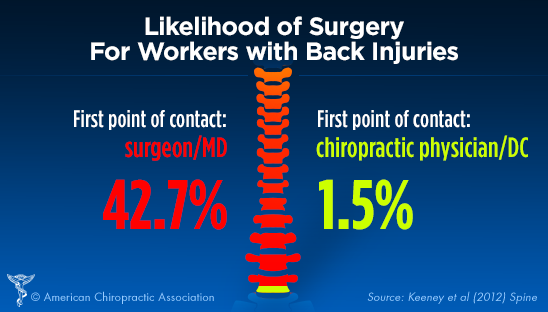Nourishment'S Impact On Neck And Back Pain Relief: Dietary Choices To Accept And Those To Stay Away From
Nourishment'S Impact On Neck And Back Pain Relief: Dietary Choices To Accept And Those To Stay Away From
Blog Article
Web Content By-Cochrane Sharpe
When it comes to handling your neck and back pain, the food selections you make can considerably affect just how you feel daily. Picture being able to reduce your discomfort merely by changing what you consume. By understanding the role of nutrition in neck and back pain management and recognizing which foods to incorporate or steer clear of, you can take positive steps towards a much healthier and extra comfortable way of life. The link between nourishment and back health and wellness is much more extensive than you may understand-- let's explore just how particular foods can either relieve or intensify your neck and back pain.
Importance of Nutrition in Neck And Back Pain
Nourishment plays a critical duty in taking care of back pain. Your diet can significantly influence inflammation levels and overall pain degrees in your back. Taking in a balanced diet plan abundant in nutrients like vitamins D and K, calcium, magnesium, and omega-3 fats can help in reducing swelling and reinforce bones, which are important for back health.
Furthermore, maintaining a healthy and balanced weight with correct nourishment can reduce stress on your spinal column, lowering the danger of neck and back pain.
Furthermore, what does a chiropractor do like anti-oxidants found in fruits and vegetables can aid battle oxidative stress and promote healing in the body, consisting of the back muscle mass and spinal column.
On https://chiropracticspecialistnea83849.slypage.com/31191640/5-trick-factors-to-involve-with-a-chiropractic-practitioner-obtaining-discomfort-alleviation-and-sustaining-health , taking in too much quantities of refined foods, sugary drinks, and undesirable fats can add to inflammation and weight gain, exacerbating neck and back pain.
Foods to Consume for Back Health
To sustain a healthy back, integrating nutrient-rich foods into your everyday dishes is crucial. Including foods high in anti-oxidants like berries, spinach, and kale can help reduce inflammation in your back, alleviating pain and discomfort. Omega-3 fats found in fatty fish such as salmon and mackerel have anti-inflammatory homes that can benefit your back health.
In addition, taking in nuts and seeds like almonds, walnuts, and chia seeds provides important nutrients like magnesium and vitamin E, which support muscle mass feature and lower oxidative anxiety. Integrating lean proteins such as chicken, turkey, and tofu can help in muscle mass repair service and maintenance, promoting a solid back.
Do not fail to remember to include dairy or strengthened plant-based alternatives for calcium to support bone health and wellness. Lastly, mouse click the up coming web site with plenty of water to keep your spine discs moistened and functioning efficiently. By consisting of these nutrient-dense foods in your diet, you can nourish your back and support overall spinal health and wellness.
Foods to Avoid for Back Pain
Select staying clear of processed foods high in sugarcoated and trans fats when seeking remedy for pain in the back. These kinds of foods can add to swelling in the body, which might exacerbate pain in the back. Say no to lower lumbar pain , breads, and sugary beverages, as well as convenience food items like hamburgers, fries, and fried hen that are typically filled with trans fats.
Furthermore, avoid foods including high degrees of polished carbs, such as white bread, pasta, and pastries, as they can spike blood sugar degrees and potentially intensify inflammation in the body.
It's additionally a good idea to restrict your consumption of foods high in hydrogenated fats, like red meat and full-fat milk products, as they can contribute to swelling. Refined foods like deli meats, chips, and packaged snacks are frequently high in hydrogenated fats and must be consumed in small amounts.
Conclusion
In conclusion, taking notice of your diet plan and making smart food options can have a substantial influence on taking care of pain in the back. By integrating nutrient-rich foods like berries, fatty fish, nuts, and lean healthy proteins, and avoiding processed and sugary products, you can help in reducing inflammation and support generally back health and wellness. Bear in mind, what you consume plays a crucial role in exactly how you really feel, so make sure to prioritize your nutrition for a much healthier back.
